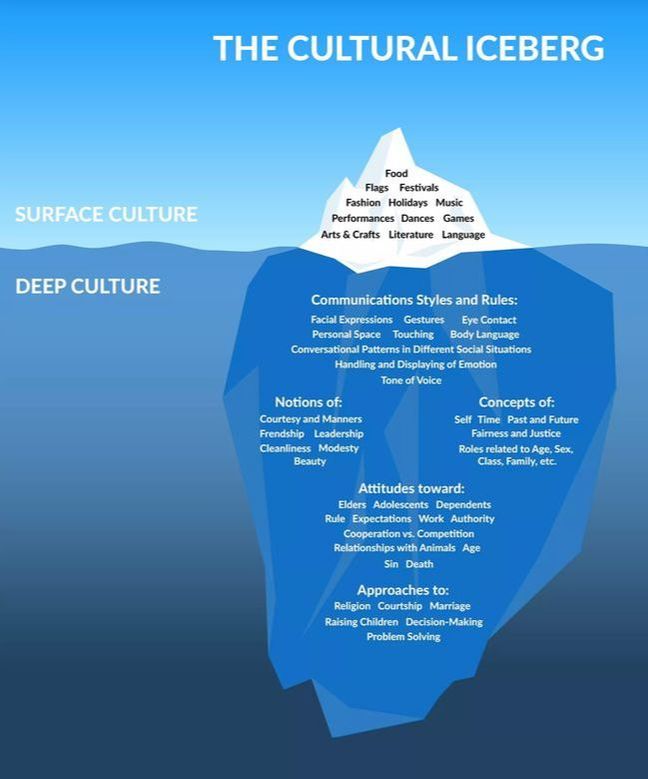To be culturally aware is to be curious, respectful, non-judgemental and open to complexity and confusion.
| Culture is a politically loaded word, and with good reason. Discussions of cultural appropriation and culturally appropriate practice encourage us to question our use of knowledge, power and action. "Cultural awareness training" has been part of many of the courses I have delivered over the years. People often express feeling unqualified, ambivalent or even insensitive in relation to culture. The question is usually, "how do we distinguish culture and how do we apply our understanding of culture to our interactions, such as in an interview or meeting?" |
When addressing "Culture with a Capital C" in a course, I invite participants to reflect on what culture means to them and those around them. We explore how culture informs their own values, thoughts, feelings and actions. During that discussion, we soon lose sight of "Culture" and enter the world of each individual’s situation and all its complexity. We then arrive at a point where we are aware of a big, confusing mess of individual opinions and situations. It's easy to wonder what is useful or practical in that mess. That is when I point out that confusion and complexity are precisely the point.
Culture influences all of our understanding, feelings and interactions. The only way through the potential confusion is to learn to assume nothing, be respectful and accept how unaware we can be of our own and each others' culture.
As a postscript, I find the term context can be a more accessible term than culture when dealing with individuals (rather than larger groups). Culture can imply stereotypes and that can be alienating if you are on the receiving end. As a more neutral and mutual term, context opens a conversation about all the factors that may surround a situation and how to build respect and trust with each other.

 RSS Feed
RSS Feed